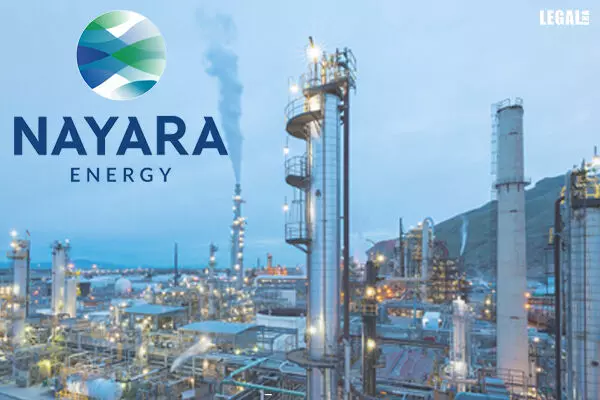- Home
- News
- Articles+
- Aerospace
- Artificial Intelligence
- Agriculture
- Alternate Dispute Resolution
- Arbitration & Mediation
- Banking and Finance
- Bankruptcy
- Book Review
- Bribery & Corruption
- Commercial Litigation
- Competition Law
- Conference Reports
- Consumer Products
- Contract
- Corporate Governance
- Corporate Law
- Covid-19
- Cryptocurrency
- Cybersecurity
- Data Protection
- Defence
- Digital Economy
- E-commerce
- Employment Law
- Energy and Natural Resources
- Entertainment and Sports Law
- Environmental Law
- Environmental, Social, and Governance
- Foreign Direct Investment
- Food and Beverage
- Gaming
- Health Care
- IBC Diaries
- In Focus
- Inclusion & Diversity
- Insurance Law
- Intellectual Property
- International Law
- IP & Tech Era
- Know the Law
- Labour Laws
- Law & Policy and Regulation
- Litigation
- Litigation Funding
- Manufacturing
- Mergers & Acquisitions
- NFTs
- Privacy
- Private Equity
- Project Finance
- Real Estate
- Risk and Compliance
- Student Corner
- Take On Board
- Tax
- Technology Media and Telecom
- Tributes
- Viewpoint
- Zoom In
- Law Firms
- In-House
- Rankings
- E-Magazine
- Legal Era TV
- Events
- Middle East
- Africa
- News
- Articles
- Aerospace
- Artificial Intelligence
- Agriculture
- Alternate Dispute Resolution
- Arbitration & Mediation
- Banking and Finance
- Bankruptcy
- Book Review
- Bribery & Corruption
- Commercial Litigation
- Competition Law
- Conference Reports
- Consumer Products
- Contract
- Corporate Governance
- Corporate Law
- Covid-19
- Cryptocurrency
- Cybersecurity
- Data Protection
- Defence
- Digital Economy
- E-commerce
- Employment Law
- Energy and Natural Resources
- Entertainment and Sports Law
- Environmental Law
- Environmental, Social, and Governance
- Foreign Direct Investment
- Food and Beverage
- Gaming
- Health Care
- IBC Diaries
- In Focus
- Inclusion & Diversity
- Insurance Law
- Intellectual Property
- International Law
- IP & Tech Era
- Know the Law
- Labour Laws
- Law & Policy and Regulation
- Litigation
- Litigation Funding
- Manufacturing
- Mergers & Acquisitions
- NFTs
- Privacy
- Private Equity
- Project Finance
- Real Estate
- Risk and Compliance
- Student Corner
- Take On Board
- Tax
- Technology Media and Telecom
- Tributes
- Viewpoint
- Zoom In
- Law Firms
- In-House
- Rankings
- E-Magazine
- Legal Era TV
- Events
- Middle East
- Africa
Gujarat High Court Dismisses PIL Against Nayara Refinery: No reason to Monitor when Pollution Control Board is Monitoring Emission Daily

Gujarat High Court Dismisses PIL Against Nayara Refinery: No reason to Monitor when Pollution Control Board is Monitoring Emission Daily
The Gujarat High Court dismissed the writ petition (Public Interest Litigation), filed against the oil refinery Nayara Energy Limited for allegedly emitting hazardous substances and polluting Vadinar Village in Devbhumi Dwarka.
The matter was heard by the division bench of Acting Chief Justice A.J. Desai and Justice Biren Vaishnav.
By way of the PIL, the petitioner raised the issue that the oil refinery was causing pollution by discharging hazardous waste by not following the necessary requirement to control the pollution which arises from such discharge.
It was the grievance of the petitioner that the respondent Board has not properly calculated the amount of fine to be paid by the private respondent company for violating several environmental pollutants under the Environmental (Protection) Act, 1986.
In to the notice issued by the High Court, Gujarat Pollution Control Board had filed affidavit-in-reply and produced relevant documents opposing the allegations made against the Board about not taking action as well as not calculating the fine which has been imposed by the Board.
Mr. Brijesh Ramanuj, learned Advocate for the respondent board, submitted that in the affidavit-in-reply filed on behalf of the board, there was continuous supervision and verification by a system known as Online Continuous Emission Monitoring System (OCEMS) installed on the basis of SMS alerts received by the board.
When the board received the SMS through said installation, the team of the board visited the premises on 2 May, 2018 and having found some emission on the part of the private company, a notice was issued on 6 June, 2018.
He further submitted that after calculating damage as per the criteria provided under various provisions and resolutions / notifications, the company was awarded a fine of Rs.61,20,000.
Further, the said amount has already been deposited by the respondent company. Thereafter the board by order / communication dated 29 January, 2019 decided to close the proceedings by issuing certain directions.
He clarified that the system of monitoring through OCEMS is continuously going on by the board and submitted that as and when emission is found on behalf of the respondent company, the board would take immediate action.
The Court after hearing the parties was of the view that the submissions made by the petitioner with respect to the unit being established in the year 2015 and the company was found emitting hazardous elements and the levy of fines should be considered from that day cannot be accepted without any cogent material produced by the petitioner or the case put forward by the Gujarat Pollution Control Board that the continuous monitoring was made through OCEMS system.
In this regard the Court observed, “we do not find any reason to continue this writ petition and particularly when the board is monitoring day-today with regard to the pollution.”
Thus, the bench dismissed the petition.



